The MEDIARE System, composed of three entities – MEDIARE Dialogues, MEDIARE Cursos and MEDIARE Institute – relies on the work of the Panel of Mediators, a multidisciplinary team. These professionals, dedicated to non-adversarial dialogue processes, work in the provision of Mediation services and integrate Thematic Sectors, which foster continuous improvement.
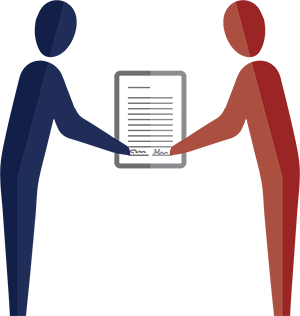 Our society has been experiencing a dizzying process of development with the intensification of relationships and dialogue between people and cultures. As a consequence, humanity began to live with the expansion of tensions, antagonisms and conflicts.
Our society has been experiencing a dizzying process of development with the intensification of relationships and dialogue between people and cultures. As a consequence, humanity began to live with the expansion of tensions, antagonisms and conflicts.
In the corporate world, disagreements between directors, managers, partners, employees and suppliers permeate daily life. In civil life, these disagreements are reproduced in the coexistence generated by cohabitation in the same building or neighborhood, or even in sporadic or permanent contracts with service providers or product suppliers, in commerce or traffic.
Dialogue is no longer the first resource for negotiating differences, giving way to the strengthening of antagonistic positions. The judicialization of everyday issues gained prominence, with litigation prevailing instead of understanding; indemnities rather than the restoration of relationships.
The conflicts arising from these interactions can benefit from the role of dialogue facilitators and/or mediators. In addition to diagnosing the impasses generated by disagreements, these professionals can help identify common or complementary interests and build alternative solutions aimed at mutual benefit. Through dialogue, it is possible to clarify points of view, build understandings and restore relationships.
In environments of continuous coexistence, such as service providers, the implementation of internal systems to support the sustainability of dialogue (training and expansion of the dispute system) makes it possible to resolve disagreements, impasses or conflicts in real time, preventing their escalation , storage or perpetuation, as well as the deterioration of the relationship between sectors, internal customers, enterprise and external customers, preserving productivity and organizational image.
The effective practice of dialogue has contributed to the harmonious coexistence of consumer relations and the necessary collaborative actions between partners
Activities
The role of the mediator as an impartial third party, chosen and hired by all those involved, aims to make it possible to listen to different points of view, as well as to choose solutions of mutual benefit based on consensus, favoring the continuity of consumer and/or partnership relations. .
Dialogue facilitation and negotiation support
Possessing greater informality compared to Mediation, but using the same principles and some procedures, Dialogue Facilitation can be useful in more difficult moments of negotiation or decision-making.
Workshops, seminars and lectures
Customized and on demand, teaching programs in company are designed covering specific topics, such as the productive dialogue with internal and external customers.
Consultancy for the design and implementation of programs aimed at dialogue and dispute resolution
With a personalized and internal character, aimed at companies and institutions, these programs improve and expand communication and negotiation skills, contributing to a better relationship with internal and external customers and, consequently, to productivity, customer loyalty and preservation of the organizational image.
Coordinators
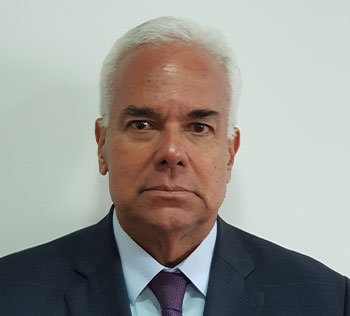
Edison Balbino
Edison Balbino
Graduate in Law, Postgraduate in Real Estate Law, Mediare Training in Conflict Mediation, Vice President of the IAB Real Estate Law Commission, Director of Institutional Relations at ABAMI.
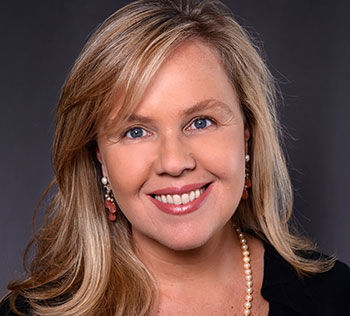
Maria Claudia Lins Bezerra de Melo
Maria Claudia Lins Bezerra de Melo
She started her career as a civil and labor lawyer, in the area of litigation, for that reason she did a postgraduate degree in Labor Law and Procedure at Universidade Candido Mendes. Over time, she migrated to the area of management and conflict resolution in a family business, completing a master's degree in International Policy Analysis and Management: Conflict Resolution and Development Cooperation at PUC / RJ. Mediator certified by Mediare, with International certification by ICFML, with an extension course in Mediation and Arbitration by FGV/RJ and Collaborative Practices by IBPC. She is a property manager, Private Mediator, Judicial Mediator of TJRJ and Public Defender RJ, co-coordinator of the Civil sector of Mediare and guest professor at the Center for Social and Environmental Responsibility of the National School of Tropical Botany of the Research Institute of the Botanical Garden of Rio de Janeiro since 2014 Collaborator in the research that resulted in the publication of the book Community mediation in Brazil: dialogue between concepts and practices.

Communities usually bring together multiple actors and multiple interests allied to the need to maintain harmonious coexistence.
The community scenario is diverse in terms of age groups, social, economic, cultural and sanitation conditions, generating public and private demands. In it, issues of different natures coexist: commercial, civil, coexistence. There are so many and so necessary the daily dialogues and daily negotiations between all these actors that conflicts arise in equal proportions and with corresponding diversity.
Faced with so many dissimilarities, it is natural that the direct negotiation of these differences does not, sometimes, lead to the immediate recovery of fluidity in relationships and the prompt construction of agreements after disagreements. The intervention of an impartial third party – a mediator or dialogue facilitator – enables the rescue of direct dialogue and makes it possible for the parties to authorize decisions, in order to provide the restoration of peaceful coexistence.
Conflict Mediation and Dialogue Facilitation between multiple parties have shown their benefits as resources for self-composition, consensus structuring, preventing disagreements from escalating and building agreements in the community context. The result is the improvement of the collective environment and, ultimately, social transformation.
Using external mediators or those who are part of the community itself, the number of communities that have benefited from the celerity, secrecy and informality provided by Mediation is growing globally.
By inviting participants of this nature of dialogue to build solutions in which differences are contemplated and can coexist with legitimacy, Conflict Mediation and Facilitation of Dialogues with multiple actors have been the mechanisms of choice for community issues.
Activities
Based on the training of community agents and representatives in a theoretical course on conflict mediation and dialogue facilitation, a supervised practice activity is developed with real cases in the community, aiming at acquiring skills to mediate and facilitate dialogues in the community itself.
Dialogue Facilitation Skills Improvement Workshops – community leaders
Holding of workshops in the demanding community itself, using instruments and methodology created especially for the exercise of specific skills to facilitate dialogues.
Consultancy for the design of Dialog Processes
In order to meet unique demands and situations, the planning of customized programs of dialogue processes is available.
Joint construction and implementation of self-sustainable community mediation centers
In partnership with movements organized by civil society and through ongoing dialogues involving mutual and complementary interests, a step by step is established for the development of these centers.
Coordinators
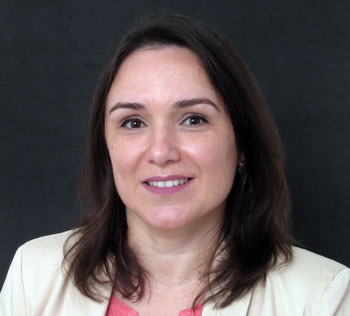
Rachel Paolino
Rachel Paolino
Lawyer at the Nizzo de Moura Office, specialist in Roman Law and International Contracts at the Tor Vergata Roma University. Theoretical module MEDIARE Course on Conflict Mediation working with supervision at CEJUSC Centro/TJRJ and Co-Coordinator of the Communities Sector. Collaborator in the research that resulted in the publication of the book Community mediation in Brazil: dialogue between concepts and practices.
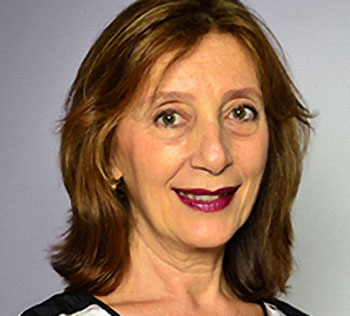
Vânia Izzo de Abreu
Vânia Izzo de Abreu
Degree in psychology. Senior Mediator of the TJRJ. Family Therapist. Postgraduate Diploma in Domestic Violence. MEDIARE Training in Conflict Mediation. He is a member of the OABRJ Mediation Chamber. Experience in project management in civil society organizations.
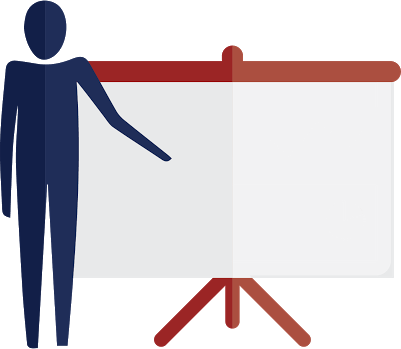 The experience started in 1998, on the occasion of the first training course in Conflict Mediation coordinated by MEDIARE, has been expanded with excellence over time.
The experience started in 1998, on the occasion of the first training course in Conflict Mediation coordinated by MEDIARE, has been expanded with excellence over time.
Courses, seminars and workshops, which took place in Rio de Janeiro and in other States of the Federation, focusing on Conflict Mediation and the Expansion of Skills for Dialogue and Conciliatory Practice, have been taught to eclectic audiences.
With no restrictions on the professions of origin, the training in Conflict Mediation can be articulated with all areas of knowledge and includes a basic theoretical segment with simulated practice and another with practice in real situations with live supervision.
In MEDIARE, the criterion of readiness in Mediation favors the improvement and acquisition of skills and not just a restricted fulfillment of the hours established for training.
A training program for professors and supervisors integrates the sector and provides academic sustainability to the team of professionals who compose it. Continuing Education permeates MEDIARE training through general and thematic study groups, seminars and workshops newspapers.
Each thematic sector of action of MEDIARE coordinates a study group dedicated to the themes of the area and articulates with the Teaching Sector, offering specific knowledge for beginners and practitioners of Mediation.
Informative courses on various topics related to the practice and sustainability of dialogues can also be offered to different audiences, in different contexts.
Based on the customization of all teaching offers, MEDIARE precedes its activities in the area with evaluative interviews aimed at identifying demand, the target audience and the specific objectives of each request.
Institutional training and courses or in company make up the spectrum of action of the MEDIARE teaching sector, which through simulations complements the theoretical-practical articulation, illustrating specific situations in the daily life of the demanding public.
Activities
Core theory courses are offered semiannually. For those interested in acting as mediators, the service of real cases with live supervision is available: Practical Module, made possible by agreements with public institutions and associations. This will occur on demand, after the end of the Theoretical Module.
Courses, lectures, seminars, workshops
With different possibilities of workload and programmatic composition, customized teaching activities are available for specific demands.
Training of teachers and supervisors
Formatted based on the improvement and acquisition of relational, academic and pedagogical didactic skills, this training guarantees the excellence of the teaching staff and can be taken to institutions that are interested in the subject.
Coordinators
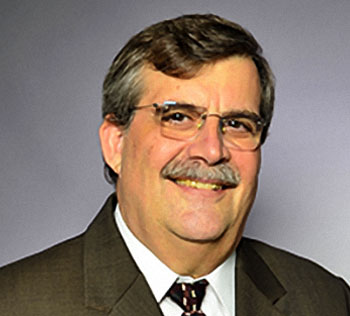
Wanderley Jose Jacob
Wanderley Jose Jacob
Economist (UNICAMP). Trained and certified in Conflict Mediation by MEDIARE. Assistant coordinator of the Teaching sector at MEDIARE. Extension courses in Transformative Mediation with Joseph Folger and Narrative Mediation with Sara Cobb. Professor of the discipline Mediation: guiding principles of linear, transformative and narrative circular schools of the Extension Course in Consensual Means of Conflict Resolution: Mediation and Conciliation – PUC/RJ, 2015 Edition. He worked in the Human Resources area in a multinational oil company for over 35 years, responsible for recruitment and selection, personnel department, communication and internal policies, remuneration, training, development and labor relations. Co-author of the book “Conflict Mediation: for beginners, practitioners and teachers”. Ed. Juspodivm: São Paulo, 2016.
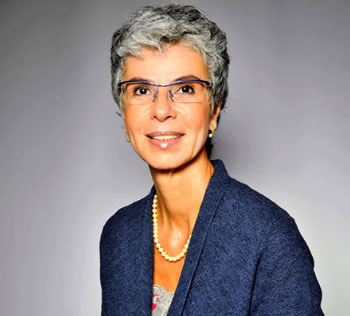
Tania Almeida
Tania Almeida
Founding partner and CEO of MEDIARE. Founder of the MEDIARE Institute. Pedagogical coordinator of MEDIARE Teaching and Supervision Programs. Director of Mediation and other means of conflict resolution of the National Council of Mediation and Arbitration Institutions (CONIMA). Consultant for the World Bank (World Bank Group) in the Conflict Mediation Sector for Latin America. Accredited Mediator of the Center for Effective Dispute Resolution – CEDR. Advanced Mediator at the Institute for Certification and Training of Lusophone Mediators – ICFML. Member of the team of Mediators of the International Institute of Prevention & Resolution – CPR and of the International Mediation Institute – IMI. Senior Mediator of the Court of Justice of the State of Rio de Janeiro. Participant of the Panel of Mediators of CAM-CCBC, FIESP/CIESP, CAMARB and CBMA, among other Brazilian Chambers. Master in Conflict Mediation. Postgraduate in Neuropsychiatry, Sociology and Business Management. Doctor. Author of “Toolbox in Mediation – practical and theoretical contributions”; coordinator and co-author of “Conflict Mediation: for beginners, practitioners and teachers”. Publishes articles in books, journals and websites.
 The business environment has been diversifying its themes and interpersonal relationships permeated by the speed of change, information technology and the coexistence of different generations. The dialogue that makes possible the negotiation of differences and interests permeates the internal processes of understanding and those aimed at their interfaces with other individuals or legal entities - the stakeholders.
The business environment has been diversifying its themes and interpersonal relationships permeated by the speed of change, information technology and the coexistence of different generations. The dialogue that makes possible the negotiation of differences and interests permeates the internal processes of understanding and those aimed at their interfaces with other individuals or legal entities - the stakeholders.
Companies are increasingly focused on the systemic analysis of their governance, aware that they form a network of partnerships that operate in permanent interdependence, through internal and external customers. They know that the quality of their productivity and/or service delivery depends on the effective maintenance of these partnerships. They are aware of the need for collaborative actions that imply mutual satisfaction as the best resource for the administration of a countless number of formal and informal contracts, which can generate disagreements, impasses or conflicts.
These contracts are part of a business dynamic that is increasingly focused on the management of intangible assets – human capital, relationships and image – putting people, the relationship between them, their skills for collaborative actions and team building as well as for the adding value to services or products, in addition to preserving the corporate image. Business mergers, growing in the contemporary world, benefit enormously from these precautions.
In addition to the practice of Mediation between companies and between organizations and their stakeholders, internal systems to support dialogue sustainability can be implemented through training in company, customized for each organization (conflict management system). They offer the possibility of resolving disagreements, impasses or conflicts in real time, avoiding the stock of dissonances that interfere in interpersonal relationships and, consequently, in production and corporate image.
The general objective of these programs is to provide a paradigm shift in the corporate culture regarding the management of controversies, impasses or conflicts, inviting the members of the network involved to resolve their differences through dialogue, using litigation as a last resort.
Activities
Assisted negotiation process in which an impartial third party - with technical competence and chosen by the parties - helps in the construction of agreements, with internal and external customers, as well as with partnerships of different natures. The possible reestablishment or improvement of the business relationship between those involved makes Mediation the mechanism of choice for disagreements that occur in relationships whose future preservation is important.
Facilitation of Dialogues and support for Negotiations
During the validity or possibility of disagreements in dialogues involving multiple parties, Dialogue Facilitation works to identify common, complementary and divergent interests, aiming at deconstructing impasses and enabling productive dialogue or the construction of “win-win” solutions. Negotiation support can intermediate segments of an ongoing negotiation or optimize meetings that include negotiation of differences between sectors, people or partnerships.
Thematic workshops and seminars in company – leadership training and dialogue with stakeholders (internal and external customers)
With different possibilities of workload and programmatic composition, customized teaching activities are available for specific corporate demands.
Consultancy for the design of Dialogue Processes and for the construction of Conflict Management Systems
Mediation and Dialogue Facilitation working to integrate existing internal business resources for managing disputes.
Mapping and Diagnosis of Conflict Situations
One-off consultations may focus on potential or already established conflicts, with a view to developing Communication and Negotiation Improvement Programs that include resources for conflict prevention and resolution, and for people management.
Coordinators
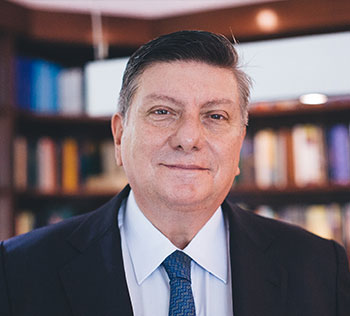
Manuel Vargas
Manuel Vargas
Founder of Manoel Vargas Advogados. He was a member and partner of LOBO & IBEAS for 40 years. Concentration and experience in the various areas of corporate, commercial and business law, large-scale business contracts, such as project finance, mergers & acquisitions, EPC and BOT contracts, privatizations, joint ventures, international issues, securitization of receivables, supply contracts, construction and specialized services.
Professor of Corporate Law at the Law Department at PUC-Rio, teaching commercial law, company theory, corporations and capital markets. Visiting professor of specialization programs in business law at PUC-Rio and UERJ (CEPED), teaching corporations, capital markets and sophisticated business contracts.
Member of the Arbitration and Mediation Commission of ICC Brasil; member of the list of arbitrators of the FGV Chamber of Mediation and Arbitration and of the CBMA - Brazilian Chamber of Mediation and Arbitration; member of the MEDIARE Institute.

Katia Tokoro
Katia Tokoro
Certified independent advisor, mentor and angel investor. She is a member of the innovation committee and coordinator of the IBGC in the RJ chapter. She has 25 years of experience as an executive and c-level at Oi and IBM. Graduated in engineering from PUC-RJ, with an MBA from IBMEC, executive training from Harvard Business School and Singularity University and in mediation from Instituto Mediare.
 The complexity of human relationships in the environment of a family business is characterized by the coexistence of three dimensions that by themselves demand attention and care: the family, the joint ownership of goods and rights and the management of the company.
The complexity of human relationships in the environment of a family business is characterized by the coexistence of three dimensions that by themselves demand attention and care: the family, the joint ownership of goods and rights and the management of the company.
When these relationships are not well structured and with adequate communication, the risk of crises and deterioration of interpersonal communication increases over time. Noise in communication is a natural occurrence due to the increase in the number of family members involved in the business relationship, and also due to the diversity of values and visions experienced when inserting people who have not previously shared the same sources of family values.
Dialogue Facilitation is an essential element in the construction of references that guide business and family decisions in a clear and precise way, for example:
-
-
- the negotiation of shareholders' agreements;
- the establishment of values, mission and vision common to all members;
- the family protocols that indicate the rules for participating in the management of the company;
- the decisions of family councils; and
- of educational policies for training new generations of entrepreneurs and managers.
-
In general, any and all family issues that could interfere in business decisions, due to possible conflicts, could be object of dialogue.
It is not uncommon, however, that the conflict is already established with reflections on the results of the family business. In these cases, Mediation proves to be a generator of value insofar as it enables the reestablishment of dialogue, even if restricted to business decisions.
Large family businesses eventually create governance systems and family offices to manage this complexity. Small and medium organizations could take the same care, given the malleability of these concepts, adjustable to all budgets.
Activities
Mediation is an adequate tool for the solution of conflicts that occur at any time of coexistence, aiming at relational or administrative impasses in the daily life of the family and the company.
Facilitation of Dialogues on topics related to Family Businesses
-
- in day-to-day decision-making or those related to proposals for change in the corporate environment, such as successions: facilitating dialogues enables the expression of different ideas and interests, helping to identify and articulate their similarities and negotiate their dissimilarities , aiming at consensus.
-
- in the construction of a family governance model - family council, family assembly, etc.: the facilitation of dialogues can be a vehicle for this construction insofar as it reconciles the different views of family members, respecting the family dynamics, essential for the model of governance.
-
- in the creation of a normative environment – shareholders' agreements and family protocol: considering that the normative family documents summarize their rules and customs, the facilitation of dialogues is presented as a practice indicated in the identification of the common elements of the family universe that will constitute both the agreements of shareholders, as the protocols or family constitutions.
-
- in creating family offices: at the end of the process of building the governance model and the normative documents, many families choose to establish a minimum structure that ensures the observance of the signed agreements – the family office. Facilitating dialogue is a sure way to define the contours and competencies of this family support body.
Seminars on communication tools, negotiation and skills aimed at leadership
With different possibilities of workload and programmatic composition, customized teaching activities are available for specific demands.
Consultancy in the design of dialogue processes and in the construction of conflict management systems
This practice is intended to identify, improve and expand the existing dispute resolution system, offering, through training, resources based on dialogue and consensus building.
Coordinators

Bruna Fetz
Bruna Fetz
Lawyer and mediator, working in the civil area, focusing on families, companies, family businesses and agribusiness. Specialist in Business Law, Agribusiness Law, Environment and Development and Applied Civil Procedural Law. Member of the Conciliation and Mediation Commission of the OAB Sectional Goiás, as well as the Special Commission on Agribusiness Law of the Rio Verde-GO Subsection.
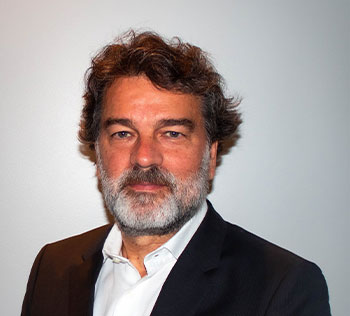
Luís Henrique Oliveira
Luís Henrique Oliveira
Graduated in Business Administration, with an MBA in Management and Finance and a Master's (incomplete) in Business Administration. I worked in the Financial Market and in companies such as American Express and Arthur Andersen, working for the last 18 years as director of Family Businesses. Certified in Mediator by CBMA in 2018.
 The MEDIARE Skills for Dialogue in Schools Program aims to expand personal resources for dialogue, as well as resources for managing people and conflicts. Through the improvement of communication and negotiation skills, socio-emotional skills and cooperative postures in the coexistence of those who make up the school and university communities - students, parents, teachers, communities, service providers, managers and other employees - it is possible to to offer this universe of differences a more favorable environment for the learning and training of subjects.
The MEDIARE Skills for Dialogue in Schools Program aims to expand personal resources for dialogue, as well as resources for managing people and conflicts. Through the improvement of communication and negotiation skills, socio-emotional skills and cooperative postures in the coexistence of those who make up the school and university communities - students, parents, teachers, communities, service providers, managers and other employees - it is possible to to offer this universe of differences a more favorable environment for the learning and training of subjects.
Through lectures, courses, workshops, experiences and consultancy, the Program takes Conflict Mediation and Restorative Practices resources to the participants of this universe, in the expectation that they will be incorporated and, consequently, used in all contexts of daily life, surpassing school walls and reflecting its benefits in personal life. This has been the growing trend of successful international practices in the educational context.
The methodology used by the MEDIARE Skills Program for Dialogue in Schools is customized for each educational institution, takes into account the particular culture of each establishment and encourages co-authorship in its construction. In this way, the school or university institution will be able to opt for programs that are dedicated to the improvement and maintenance of dialogue for its different segments, with language adapted to different age groups and levels of understanding. The sustainability of this learning is also the theme of the methodology used.
With a broad social reach in terms of benefits, the MEDIARE Skills for Dialogue in Schools Program makes it possible, in general terms: (i) to act collaboratively, improving the ability to hear and be heard; (ii) learn to positively handle divergences, impasses or conflicts; (iii) improve the ability to create peaceful and mutually beneficial solutions; (iv) properly use power: hierarchical, knowledge or otherwise; (v) reduce the level of intra- and extra-class conflict – discipline problems and incidents of violence; and (vi) improve communication, socio-emotional skills and understanding among all segments of the school universe.
Activities
MEDIARE team members may act as mediators or facilitators in situations of conflict between members of the school community (students, teachers, employees, guardians, etc.) .
Training of School Mediators or Restorative Practice Facilitators
The MEDIARE team will be able to offer, or design in co-authorship with the institution, customized programs for the training of mediators or facilitators of restorative practices.
Courses, lectures, workshops
With different possibilities of hours and programmatic composition, the team will develop customized teaching activities on topics related to dialogue skills, socio-emotional skills, productive communication, conflict and people management, and restorative practices.
Coordinators
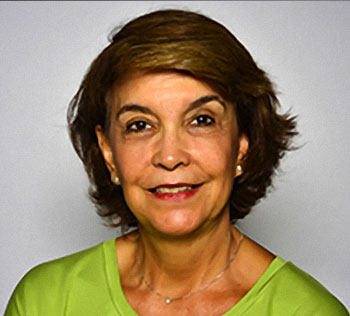
Monica Lobo
Monica Lobo
Psychologist and pedagogue specializing in Psychopedagogy and Family Therapy. Member of the multidisciplinary team of Collaborative Practices acting as a teacher in courses and seminars throughout Brazil. Coordinator of Mediare's School Mediation Sector, she carries out consultancy in schools. Co-author of the books “Psychopedagogy a systemic approach”, “Dramatic histories – brief therapy for families and therapists”, “Beyond paradise” and “My family and my money”.

Vânia Izzo de Abreu
Vânia Izzo de Abreu
Degree in psychology. Senior Mediator of the TJRJ. Family Therapist. Postgraduate Diploma in Domestic Violence. MEDIARE Training in Conflict Mediation. He is a member of the OABRJ Mediation Chamber. Experience in project management in civil society organizations.
 Mediation is a particularly suitable and effective instrument for handling conflicts arising from ongoing relationships, especially family ones. It significantly contributes to the reduction of emotional, social and financial costs, by articulating objective and subjective issues during the dialogue process and by guiding the construction of solutions for mutual benefit.
Mediation is a particularly suitable and effective instrument for handling conflicts arising from ongoing relationships, especially family ones. It significantly contributes to the reduction of emotional, social and financial costs, by articulating objective and subjective issues during the dialogue process and by guiding the construction of solutions for mutual benefit.
When not legitimated and taken care of in a timely and satisfactory manner, feelings and emotions generate noise in communication, compromising the fluidity of dialogue and strongly interfering in the negotiation of objective issues.
In contexts such as dissolution of marriage or stable union - definitions inherent to the exercise of parental responsibility ("guardian"), to the routine of parent-filial coexistence ("visitation"), to the paternal and maternal contributions to the financial maintenance of minor children (" alimony”) – sharing of assets from a conjugal/living partnership or inheritance, as well as in matters pertaining to family businesses, Mediation finds fertile ground to sow its social benefits – it works, in parallel, on the objective issues that it intends to equate and the preservation of the relationship between those involved in the conflict.
Divorces, deaths and new unions represent changes in family dynamics, giving rise to the need for new arrangements. In these moments, the skillful performance of the mediator, an impartial third party chosen by the parties, specialized in communication and negotiation techniques, can be of great value.
Confidentiality, inherent to the Mediation process, makes it possible to maintain a secure context in which information can travel more freely and subjective aspects can be dealt with more widely.
Benefits such as encouraging protagonism and co-authorship in the construction of “win-win” agreements, the preservation of the underlying social relationship and the learning of a business model that allows for the generation of creative and inclusive solutions make Conflict Mediation the instrument of choice. to settle the differences that have family relationships as a scenario.
Activities
Provision of conflict prevention and resolution services for different issues related to the family.
Workshops, lectures and thematic courses
Availability of teaching activities related to the family area, with different possibilities of workload and programmatic content.
Consultancy for the design of Dialog Processes
Conducting evaluative interviews and proposal for the development of dialogue processes and/or conflict management.
Specialization course in Family Mediation
Conducting courses with the aim of providing specialized knowledge and expanding the skills of mediators in the area.
Coordinators
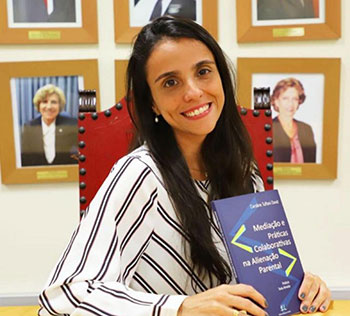
Caroline TuffaniDavid
Caroline TuffaniDavid
LL.M in US Law, Master in ADR, Mediation and Family Law from St. Thomas University School of Law, Minneapolis. Bachelor of Laws and postgraduate in Family and Inheritance Law from PUC-Rio. Lawyer at Pessôa, Piquet e Figueiredo Advogados, working in the areas of Family Law, Inheritance, Estate and Succession Planning and Contracts. Conflict Mediator with the TJRJ (Cejusc) and the Institutional Chamber of the OAB/RJ. Mediation Supervisor at MEDIARE at the Public Defender's Office and at the Public Ministry of Rio de Janeiro. Member of the Conflict Mediation Commission and the Collaborative Practices Commission of the OAB/RJ. National Training in Collaborative Practices by IBPC and IACP – Minneapolis. Legal Assistant at Mid-Minnessota Legal Aid handling family cases. Externship Mentor with Swaden Resolution Services handling ADR and Family Law cases. Conciliator at Procon – Consumer Protection and Defense Authority. Author of the books “Mediation and Collaborative Practices in Parental Alienation” and “Moral Damage by Affective Abandonment”, Publisher Espaço Jurídico –
2019 and 2015.
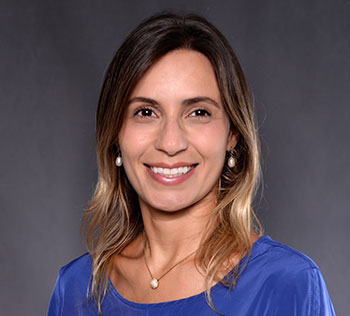
Leila Amboni
Leila Amboni
Conflict Mediator formed by MEDIARE. Lawyer graduated from UERJ and trained in Collaborative Practices. Postgraduate in State and Regulation Law from FGV. Coordinator of the Mediation Center of the Postinho Health Network and of the Family and Succession Sector of MEDIARE.
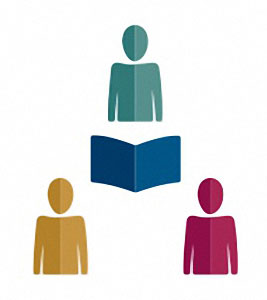 The MEDIARE Reading Group's proposal is to encourage access to literature that adds value to the practice of dialogue and stimulates reflection on it.
The MEDIARE Reading Group's proposal is to encourage access to literature that adds value to the practice of dialogue and stimulates reflection on it.
The conversations that take place in these meetings always provoke articulation with Conflict Mediation and Dialogue Facilitation.
This initiative is an interesting way to bring together a group of people to talk about a given work, share their points of view and practical articulations, as well as articulate them with the author's points of view.
Activities
- In the MEDIARE Reading Group, a book is read every two months. The list of books is pre-established annually, but is always open to new proposals.
- At monthly meetings, the exhibition of book summaries is accompanied by powerpoint and questions that stimulate discussion are part of the dynamics of subsequent conversations.
- Reviews of a non-academic nature, related to the readings made, are available on the MEDIARE website.
Coordinators

Tania Almeida
Tania Almeida
Founding partner and CEO of MEDIARE. Founder of the MEDIARE Institute. Pedagogical coordinator of MEDIARE Teaching and Supervision Programs. Director of Mediation and other means of conflict resolution of the National Council of Mediation and Arbitration Institutions (CONIMA). Consultant for the World Bank (World Bank Group) in the Conflict Mediation Sector for Latin America. Accredited Mediator of the Center for Effective Dispute Resolution – CEDR. Advanced Mediator at the Institute for Certification and Training of Lusophone Mediators – ICFML. Member of the team of Mediators of the International Institute of Prevention & Resolution – CPR and of the International Mediation Institute – IMI. Senior Mediator of the Court of Justice of the State of Rio de Janeiro. Participant of the Panel of Mediators of CAM-CCBC, FIESP/CIESP, CAMARB and CBMA, among other Brazilian Chambers. Master in Conflict Mediation. Postgraduate in Neuropsychiatry, Sociology and Business Management. Doctor. Author of “Toolbox in Mediation – practical and theoretical contributions”; coordinator and co-author of “Conflict Mediation: for beginners, practitioners and teachers”. Publishes articles in books, journals and websites.
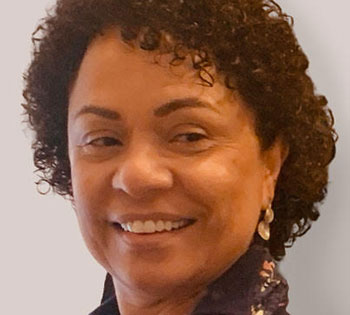
Raquel Campos Saad
Raquel Campos Saad
Graduation in Civil Engineering (UERJ), Master in Civil Engineering (UFRJ), Post-Graduate in Systems Analysis (PUC-RIO), Training in Conflict Mediation (Instituto MEDIARE).
 Collaborative Practices (CP) consist of a non-adversarial method of resolving disputes, based on the refusal to litigate and based on dialogue aimed at consensus and mutual benefit, as well as the search for sustainable and feasible agreements. Applicable to conflicts of a family, civil and business nature, based on collaboration, good faith and the maintenance of the parties' autonomy.
Collaborative Practices (CP) consist of a non-adversarial method of resolving disputes, based on the refusal to litigate and based on dialogue aimed at consensus and mutual benefit, as well as the search for sustainable and feasible agreements. Applicable to conflicts of a family, civil and business nature, based on collaboration, good faith and the maintenance of the parties' autonomy.
The PCs were initially conceived by an American family lawyer in the 80s, Stuart Webb, who was dissatisfied with his daily litigation, as he saw the devastating effects of legal proceedings on the entire family system, even in cases where his clients had success in their claims.
Later, Peggy Thompson – an American psychologist – expanded Webb’s idea and included, when necessary, the participation of health professionals (psychologists, social workers, child therapists and others), with a view to expanding the spectrum of conflict treatment. The participation of financial advisors, if necessary, followed, thus forming a multidisciplinary team.
This innovative idea of conflict management has been disseminated in our country since 2011, and was strengthened with the award of the work authored by lawyer Olivia Fürst, entitled “Collaborative Practices in Family Law”, by the Innovare Award 2013.
In the application of the Collaborative Practices, each party will be assisted by a lawyer who will assume the commitment of non-litigation, signing a term indicating this option; the patrons are thus prevented from sponsoring a lawsuit on the issue that is the object of the collaborative pact. In addition to the non-litigation pact, all participants in the procedure (lawyers and parties) sign a confidentiality agreement.
With the choice of Collaborative Practices, lawyers and clients stop representing mutual threats and start to act in partnership, aiming at the formation of a collaborative and confidential environment provided by the application of Mediation tools with the essence of Advocacy.
Notably in the resolution of disputes related to the family, if necessary, each party may be assisted by a coach (health professionals - psychologists, social workers and therapists), who will provide all the emotional support in dealing with the pain of this process and in the family reconstruction, offering communication and negotiation tools useful to the collaborative process, so that those involved always have a prospective vision.
With regard to practices for managing conflicts of a civil or business nature, collaborative lawyers and other professionals who have specific knowledge about the issue to be addressed can form a multidisciplinary team, which will work together and in partnership in the design of a solution. optimized.
By maintaining study groups, MEDIARE encourages and supports the use of Collaborative Practices, encouraging the training and continued study of professionals who are dedicated to it.
Of great social reach, these practices foster consensus, enabling, in parallel, the restoration of dialogue and the maintenance of social relations.
Watch the video: Collaborative Practices in Family LawActivities
Study Groups in Collaborative Practices
Bimonthly meetings. The group is dedicated to the study and debate of bibliography on Collaborative Practices in Family Law. Aimed at professionals in the legal, mental health and finance areas, it is open to the public.
Working Group on Collaborative Practices
Group whose purpose is to act interdisciplinary in real cases, promoting analysis and exchange of experiences. Requirements: (i) have training in Collaborative Practices; (ii) attend the Study Group; and (iii) maintain attendance in both groups.
Coordinators
Natalia Winter
Natalia Winter

Isabel Ramos
Isabel Ramos
Lawyer (Puc-Rio Law). Postgraduate in Family and Succession Law (Puc-Rio). Mediator (Formed by the Mediare Institute). Training in Family Mediation (Puc-Rio). Trained in Collaborative Practices (IBPC). Coordinator of Mediare's Collaborative Practices Sector. Member of the IBPC Diversity and Inclusion Commission. Volunteer mediator at the Public Defender's Office of the State of Rio de Janeiro.

The group has a proposal for reflection on new possibilities for conflict resolution, especially in work relationships. Since the entry into force of the Labor Reform Law (2017), there has been significant flexibility regarding negotiations between employees and companies.
The group's suggestion is to think about how we can make the use of Collaborative Practices a reality in capital and labor relations, whether preventively or when the conflict is already established.
Change the paradigm that the employee is always hyposufficient and needs the intervening State to solve their problems with the company. Give workers autonomy and less judicialization of issues that can often be dealt with extrajudicially.
Activities
- Labor case studies that could have been resolved by collaborative practices.
- Lectures with guests on the topic.
- Analysis of articles on collaborative practices and how to adapt the Brazilian labor reality.
- Debate of films that bring themes of capital/work conflicts to think about possible solutions in this new possibility of using collaborative practices.
- Proposal for the practice of preventing intra-organizational conflicts with the help of collaborative practices.
Coordinators
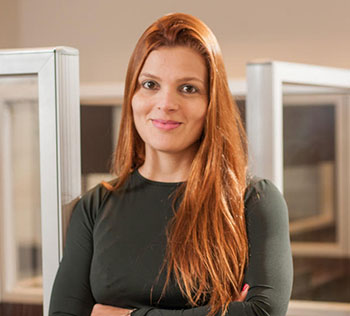
Tatiana Penna
Tatiana Penna
Businesswoman in the construction sector. Collaborative Lawyer trained by the IBPC. ICFML certified mediator. Specialist in Business Law and Civil Liability. Postgraduate student in Organizational Psychology – PUC/RJ. Affiliated with SBPOT. Master's student in Conflict Resolution Systems – UNLZ/Argentina. Member and Secretary General of the Positive Conflict Management Commission of ABA/RJ. Coordinator of the Working Group on Collaborative Practices in Labor Law at the Mediare Institute.
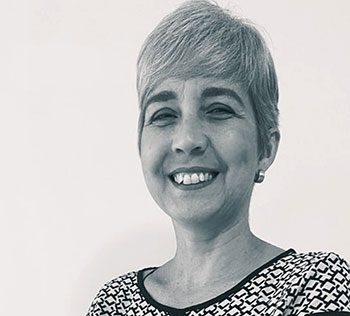
Solange Lopes Parola
Solange Lopes Parola
Lawyer for over 20 years, specialist in Labor Law and Labor Process. Collaborative Lawyer and Mediator in Brazil and studying at the Institute of Mediation and Arbitration of Portugal – IMAP for mediation in Portugal.
Mediator at the MediArbitragem Chamber.
Coordinator of the Collaborative Practices Group in Labor Law at the MEDIARE Institute – RJ. Member of the Positive Management Committee of ABA – RJ.
Post-graduated in Mediation, Management and Conflict Resolution – by -Universidade FUMEC – MG. Postgraduate student in Adequate Conflict Resolution Methods: The new spaces of Consensus in Brazilian Law – CEPED – UERJ
Studying Public Management Technologist – Faculdade Estácio de Sá
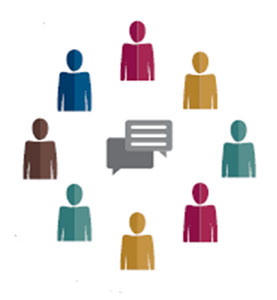 Restorative Practices has its origin and inspiration in Restorative Justice, which came, among other purposes, to oppose the state monopoly of criminal, retributive and punishment-based justice.
Restorative Practices has its origin and inspiration in Restorative Justice, which came, among other purposes, to oppose the state monopoly of criminal, retributive and punishment-based justice.
Restorative Practices have gone beyond the scope that inspired them, and although they do not present a standard conceptual definition, there is consensus that it is a method that allows collectively, through dialogue and creative processes, to build solutions participatory, where all those directly or indirectly involved respect and recognize each other as similar.
Including preventive or reactive procedures, with the objective of building safe and healthy living contexts in various areas, such as school, family, community, organizational, including in companies, Restorative Practices have become a great ally in the success of relationships. interpersonal.
Based on dialogue, commitment, respect, voluntarism, empowerment, confidentiality, honesty, solidarity, authenticity, and co-responsibility, Restorative Practices have as a natural consequence, the positive connection between people.
Coordinators
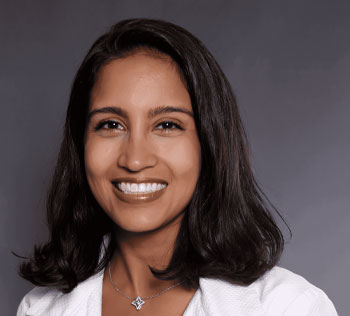
Cristina Danielle Pinto Lobato
Cristina Danielle Pinto Lobato
ICFML Certified Mediator. Lawyer graduated from UERJ. Master's student in Cultural Goods and Social Projects at FGV. Specialization in Mediation and Adequate Methods of Conflict Resolution by IUPERJ and in Civil, Business and Civil Procedure Law by UVA.
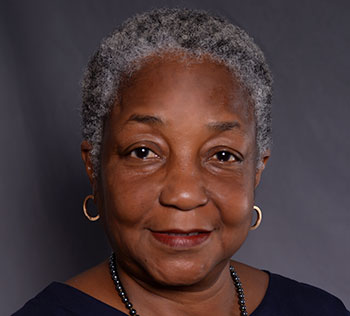
Sandra de OliveiraSilva
Sandra de OliveiraSilva
Psychologist, Psychoanalyst, Systemic Family Therapist.
Specialization in Public Policies and Socioeducation-UNB.
Training in Judicial Mediation-TJRJ/CEJUSC-Cabo Frio-RJ.
Training in Restorative Justice - State Department of Education/DEGASE/ESGSE/RJ.
Training in Restorative Practices-Laboratory of Living/LABCON/SP.
Institutional Clinical Supervisor - Municipal Health Department/Cabo/Frio/RJ.
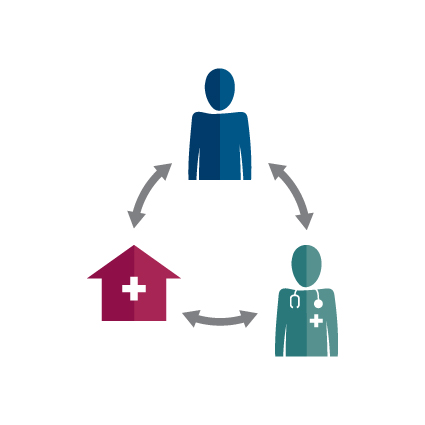
Dialogues motivated by conflicts or disagreements in the health area are complex because they involve multiple parties with sometimes dissonant interests. If we consider, in a simplified way, a dialogue between the three main actors in this area – patient/family, medical establishment/service providers and insurance entities – at least three types of discourse will be sitting at the negotiating table: affective, technical and the financial.
Also taking into account the network of stakeholders interconnected to the structure of medical service establishments, hospital units, clinics and insurance entities - suppliers, outsourced workers, employees and external customers, among others -, we can identify a countless number of interactions and formal and informal contracts that can generate conflicts in each of these segments.
This web of participants that enables the provision of services in the health area manages numerous manifestations of dissatisfaction, judicial and non-judicial complaints, in addition to compromising the image of health establishments, as well as the relationship with customers.
Conflict Mediation and Dialogue Facilitation in the health area are a reality in other countries and now also in Brazil. The mediators and dialogue facilitators working in this field are also professionals in the field, with expertise in communication and negotiation and holders of specific knowledge on medical and related issues.
Both internal dialogues with medical entities and those between professionals and clients, and between institutions, insurers, clients and other interested parties can benefit from the speed and secrecy of the resolutions arising from the dialogue promoted by Mediation. All cases in which the maintenance of relationships between the people involved is prioritized and who can dispense with the legal perspective and the production of evidence can find in Mediation and Facilitation of Dialogues the ideal scenario for the construction of agreements that contemplate the mutual interests and produce the satisfaction of all parties involved.
There are countless benefits in bringing the disagreements of conflicts in the health area into the dialogue scenario: the preservation of the image of the entities involved, the construction of customized solutions of mutual benefit (win-win), secrecy and speed in the creation of solutions, the reduction of financial and emotional costs, in addition to the preservation and improvement of the relationship between the different parties involved, individuals and legal entities.
Activities
The role of the mediator as an impartial third party, chosen and hired by all those involved, aims to make it possible to listen to different points of view, as well as to choose solutions of mutual benefit based on consensus, favoring the continuity of consumer and/or partnership relations. .
Facilitation of Dialogues and support for Negotiation
Possessing greater informality compared to Mediation, but using the same principles and some procedures, Dialogue Facilitation can be useful in negotiations involving this network of individuals and legal entities and their disparate interests.
Workshops, Seminars and Lectures
Customized and on demand, teaching programs in company are designed covering specific topics, such as productive dialogue with internal and external customers.
Consultancy for the design and implementation of programs aimed at dialogue and dispute resolution
These programs focus on mapping the dispute resolution system that already exists in hospital units and identifying improvements that may be reflected in improved productivity, customer loyalty and the preservation of the organizational image.
Courses and training in communication and negotiation
They aim to improve resources to improve communication and interpersonal negotiation between team members and in the relationship with customers.
Coordinators
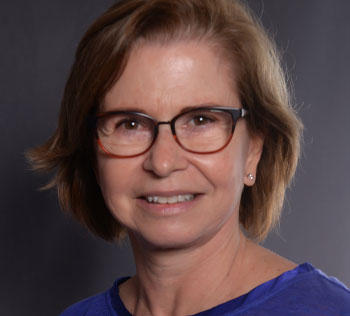
Shirley Gomara
Shirley Gomara
Conflict Mediator formed by MEDIARE. Physician graduated from UFRJ with specialization in Pulmonology and postgraduate degree in Occupational Medicine at UERJ Extensive experience as Superintendent of National and International Service in Multinational Company and Health Insurance Companies.
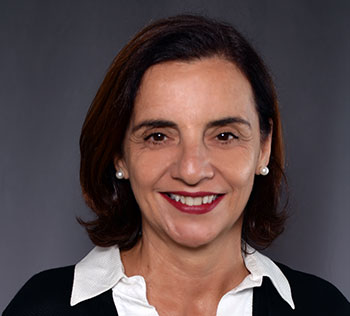
Mercedes Schumacher
Mercedes Schumacher
Founding partner of Borges e Schumacher Advogados, she works as a collaborative lawyer and mediator in training at Instituto Mediare, focusing on the areas of family and succession, in private and business contexts. She has extensive experience in coordinating an interdisciplinary service program for women, and in conflict management within the scope of markets regulated by the Public Administration. She holds a degree in Law from the University of Vale do Rio dos Sinos / RS, specialization in economic regulation from the Federal University of Rio de Janeiro and in public policy from the University Institute of Research of Rio de Janeiro.
